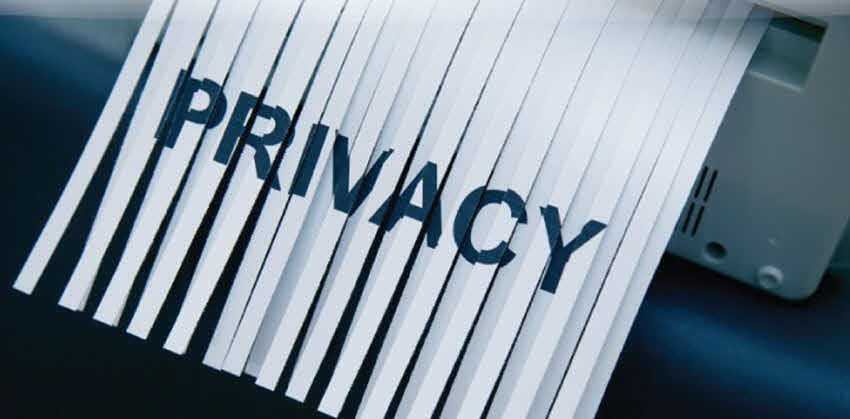Do you think that "since I have nothing to hide, why do I care about privacy?". How correct is this view? Does it make sense and if not where does it falter?

Are you hiding something? Are they confidential transactions? Confidential evidence of extraterrestrial life? Your secret identity as an anarchist hacker who wants to drag the chaos? No; So okay. There is no need to worry about the privacy of your life unless you are a criminal. "If you have nothing to hide, you have nothing to fear", right?
Λοιπόν, δεδομένου ότι οι περισσότεροι χρήστες, διαπράττουν χωρίς να το θέλουν νομικά παραπτώματα, πιθανώς είστε εγκληματίες. Ακόμα κι αν δεν είστε, σίγουρα θα έχετε κάτι να κρύψετε και πρέπει να έχετε το δικαίωμα να το κάνετε, αν επιθυμείτε. Πώς σας φαίνεται να υπήρχε μία κάμερα ασφαλείας στο παραβάν σε ένα κατάστημα ρούχων; Τι γίνεται αν κάποιος δημοσιεύσει όλες τις οικονομικές σας information on Facebook; How would you feel if someone released a list of every email account you ever had?

Chances are you won't get excited about all of these things. But even if you're not particularly bothered, think about how governments and companies can use these data, against people or groups they don't like. The more you know about someone, the better you can manipulate and control them, and that generally doesn't tend to be in anyone's best interest.
The argument "If you have nothing to hide, you have nothing to fear" collapses when you look deeper, mainly because "Yes, you always have something to hide". Being able to hide things is crucial, no matter how important they are.
Edward Snowden outlined the basic need for privacy and privacy in a report on Reddit"The argument that you are not interested in the right to privacy because you have nothing to hide is no different than saying that you do not care about freedom of speech because you have nothing to say."

Everyone has things to hide, and that's normal
It is not just criminals who want to keep certain information secret. Most people, for example, obviously would not be indifferent to unlocking their phone and having government or corporate agents search for it. The reaction would be the same if they showed up at your house and started looking. They may not be able to arrest you because they will not even find a misdemeanor, but how okay would you be if what they find ends up in a database or used to identify your advertising profile?
Your personal data does not necessarily have to incriminate you to be classified as harmful. Depending on who gets your hands on your messages, your photos or the details of your moves, it could put you in an extremely difficult position. You may have some ethical habits that, if exposed, could damage some of your relationships with those around you or even lead to legal consequences. Since your identity, gender, political opinions, sexual orientation, health, your eating habits and dozens of other characteristics of your life can be collected and used by others, this dossier is characterized at best as an intrusion into your life and at worst as dangerous.

Everyone hides some small things, but collectively as a society we have decided that hiding these things is normal. Some people may hide more than others, but the only way to ensure the privacy and privacy of all people and possibly their security is to ensure that everyone has the same initial level of protection.
Lack of privacy causes real problems
Information is power. At the individual level, someone who possesses information about you can commit phishing attacks, steal your identity, leak information, and generally confuse you.

Most of you want your credit card details and ID number to be encrypted every time you enter them on a website, as this information can help someone harm you. However, your other personal information, from your birthday to your browsing history, can also be used against you, so you should draw a red line about what you allow to be collected and stored.
At a wider social level, services that collect huge amounts of data can cause real damage. Scandals such as Cambridge Analytica show how third parties can misuse your personal information for the change of political outcomes and that the consequences of data breaches by companies could have an impact on your finances and future.
Ad targeting may be one of the most beneficial uses of all this data. Showing ads focused on your preferences, even if it is a bit manipulative, is not the problem. The problem is the edges of the information used to create them and the possibility that all the data can be used in potentially harmful ways.
It is a fundamental right. Societies need privacy to function
In general, people should be able to choose what they will reveal about themselves and their lives. This is something that most pro-democracy peoples and nations tend to agree on, such as the right to freedom of speech and the right to assembly. You do not have to accept any kind of moral or philosophical argument to see how closely connected privacy and freedom are.
Can you imagine a society where everything you do is monitored by a central entity? There is a reason that the lack of privacy is a key feature in the darker visions of humanity's future. Intervention monitoring is both the symptom and the cause of a non-free society. A small taste of such a society can be realized if you consider that most governments, law enforcement agencies and private companies will still choose to watch what people do. And this is happening everywhere, from totalitarian regimes to fairly functioning democracies.

The obvious threat to freedom is the active use of data to quell dissent, by monitoring and blocking activists, journalists, political opposition groups and other "problematic" categories of people. The least obvious threat to freedom is lack of knowledge and self-censorship. If you do not know where the red line is and the penalty for crossing it is high, then you will stay away from it.
It's a real phenomenon that does not just happen in places like North Korea and China. For example, Jon Penney of Harvard Law School, discovered a significant drop in Wikipedia searches in the US for terms that could be labeled "relatively terrorist" following Snowden's revelations. If you think twice before doing it, then your expectation of privacy is definitely low enough, since you are self-censoring. At least until you turn on a VPN and go to DuckDuckGo. People change their behavior when they are watched.
Do you have anything to hide? yes you have
Everyone has something to hide and if they are deprived of this possibility to have something secret then it will have many negative consequences. Privacy is an abstract good and that is why we often underestimate it. It is like climate change, it is something that worries us, but not something that will make us get up from our couch.

On the other hand, becoming insane with privacy and watching your every move is a logical reaction, but you will probably make your life less comfortable and may not maintain your privacy as much as you would like. But without taking enough drastic action, it is difficult to have a truly private life. Knowledge and voice are the best way to promote the systemic changes needed to solve the problem.
Use and support privacy-conscious software (PrivacyTools.io keeps a good list), use a VPN if it doesn't slow you down too much, and if you hear someone say they're not worried because they have nothing to hide, just ask them to tell you hand over his unlocked phone and his email passwords while you browse his photos and historyletterof browsing.





